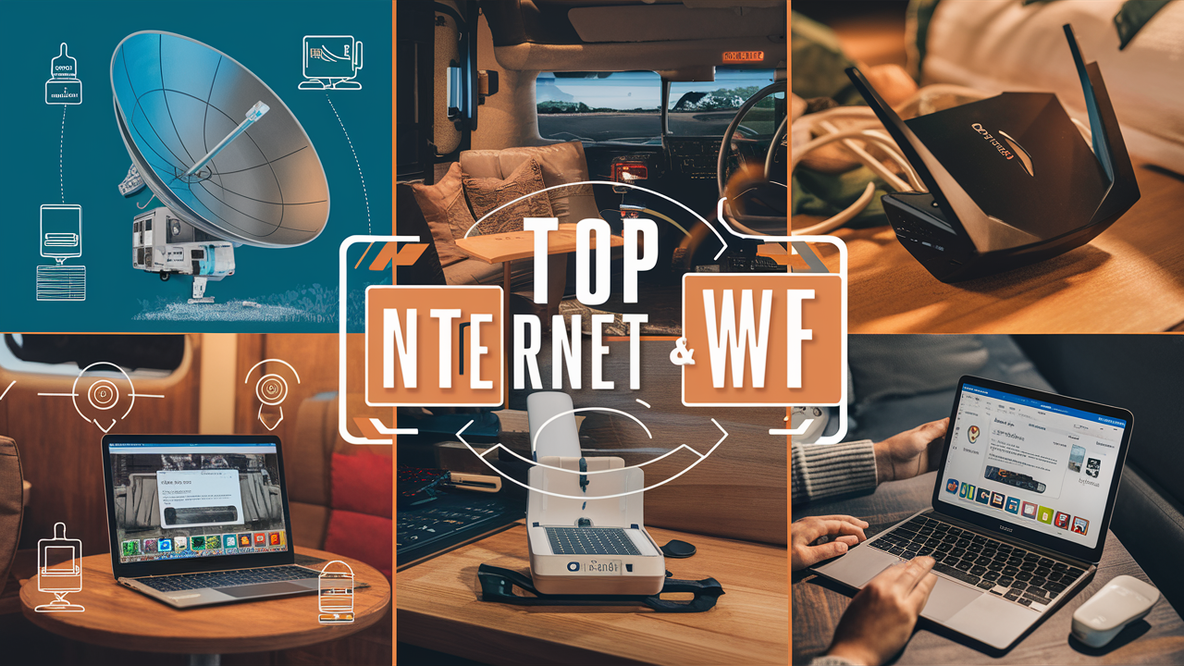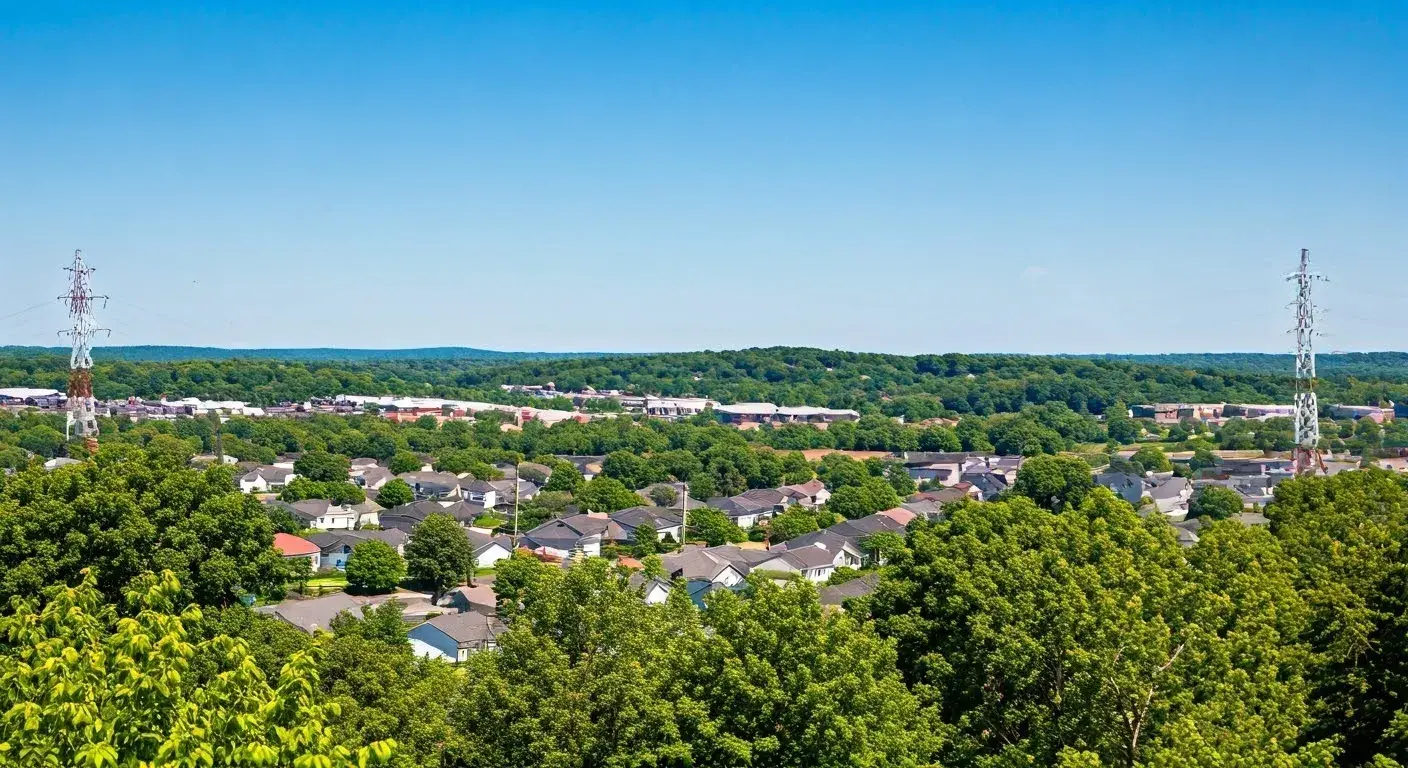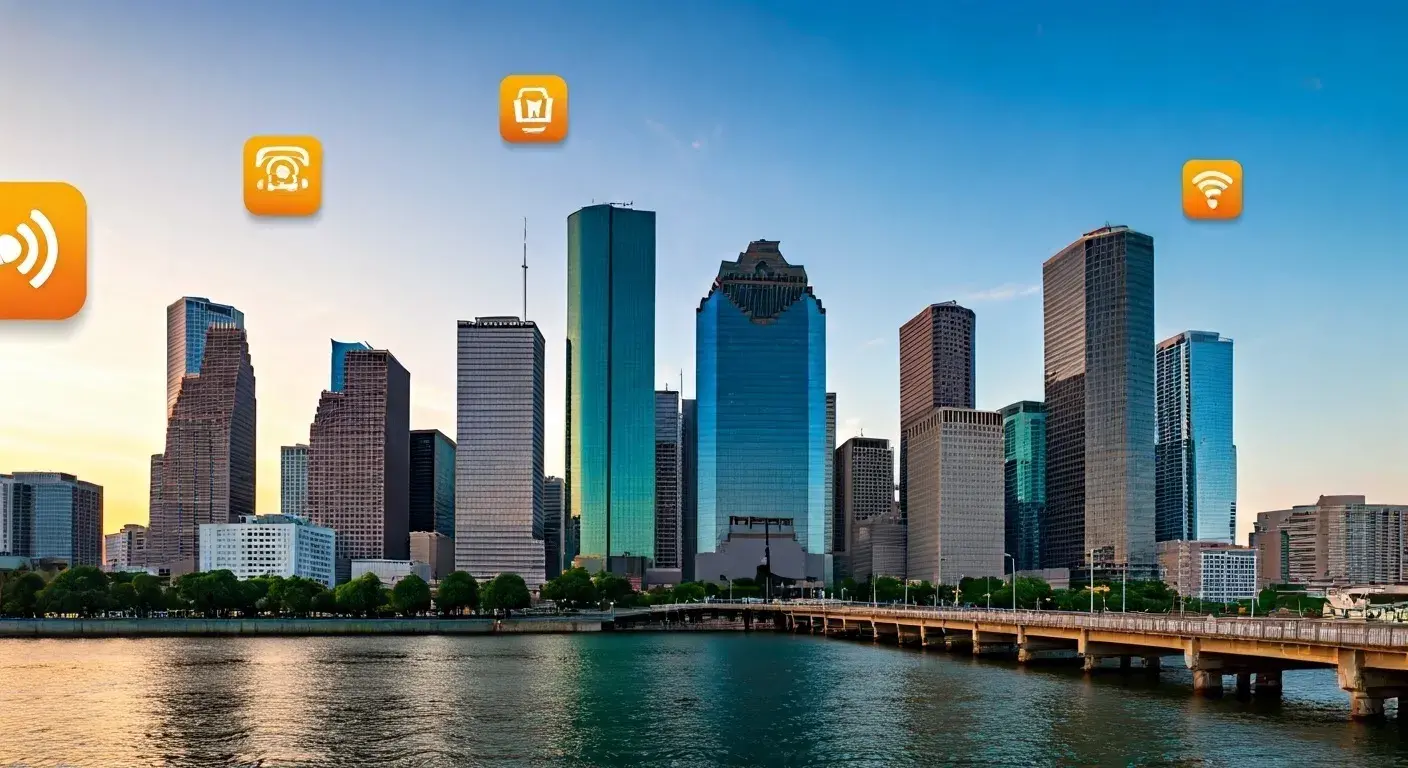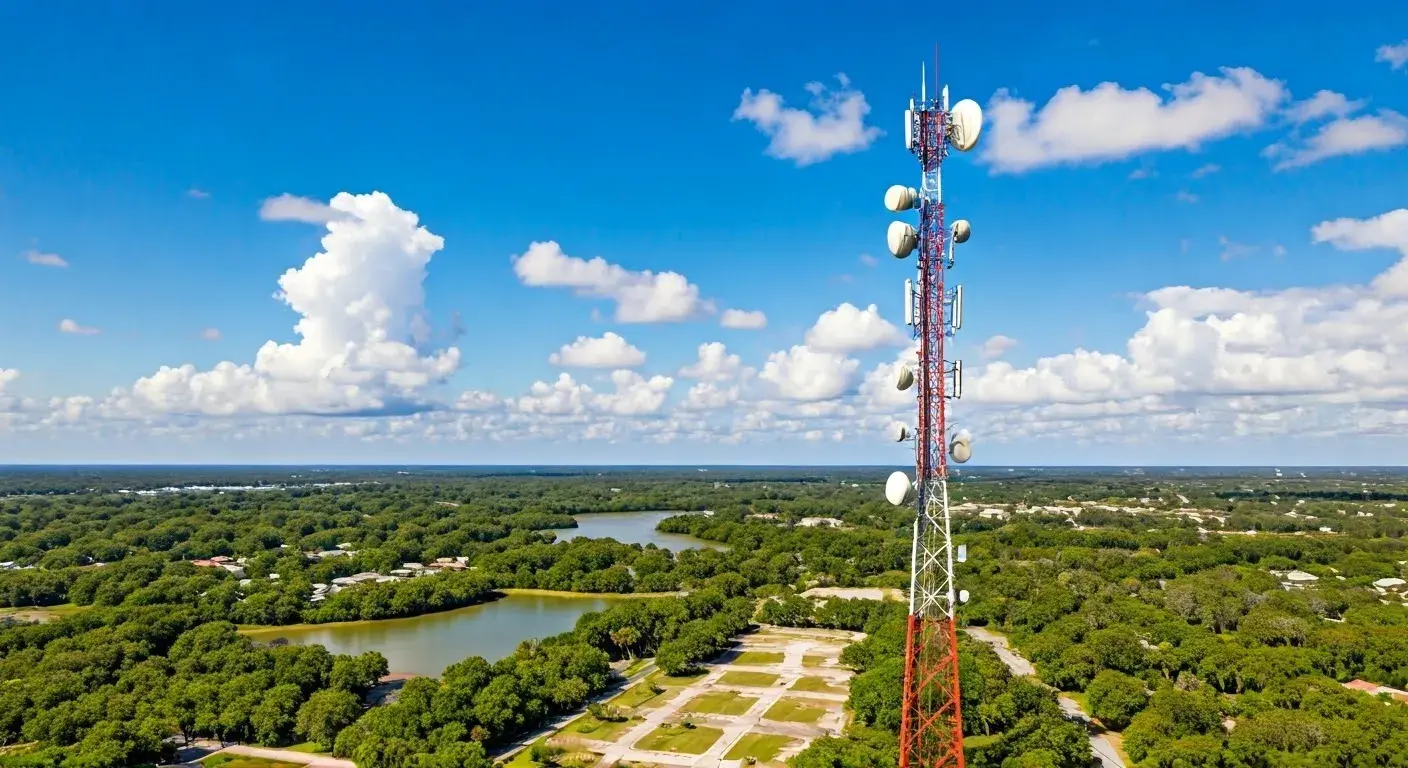
We were able to determine the best RV Internet and WiFi options. Because there are more people out and about or telecommuting in their RVs, reliable and fast internet connection is crucial. These facilities include the ability to watch movies or TV shows, work, browse through blogs and social networks, and keep in touch with people you know when traveling in an RV. However, the problem of good RV WiFi is the major issue that RV travelers face because cellular signals and public WiFi hotspots are unreliable in most camping areas. This article also highlights what providers are the best for internet and WiFi specifically for the RV lifestyle so that you don’t have to worry about being disconnected from the world whenever you decide to move to another place.
Wireless Broadband and Cell Phone Data Services
The most widely used solution for RV internet connection is the usage of a mobile hotspot through cellular operators, Verizon, AT&T, T-Mobile, etc. Many of them use cellular LTE networks for speed since most networks offer high connectivity. A mobile data plan is offered every month with many offers that come with an unlimited data usage.
The advantage of mobile hotspots is that you are accessing cellular networks across the United States as you travel, so you can be connected almost anywhere. Connection speeds are almost always faster than campground WI-FI and are capable of streaming video conferencing, and downloads. That said, it is worth noting that there might still be some areas in the countryside that would lack good connectivity.
Most of the smartphone contracts also include hotspot tethering too The internet access in most of the portable devices is usually only allowed for such a purpose. Nonetheless, the speed may be restrained and data volumes are often restricted in phone tariffs, and, therefore, the unlimited hotspot plan can be used as the primary Internet connection.
Cell Signal Boosters
If there are signals in the area that are usually low you can use an RV cell signal booster to Catch those signals and Increase the speed in your RV. They are useful when static, for instance at a campsite with poor signal and they could prevent the need of shifting your RV back and forth for signal.
These include; the distance and area to be covered to enable cater for the size of the RV, the carriers that are supported, and whether it is for 3G, 4G, or even the new 5G networks. Fix them properly with the outside and inside antennas to pull and re-transmit the signals across your RV.
Public Campground WiFi
Some of the common amenities that are found across most RV parks and campgrounds include free WiFi hence breaking the internet from your campsite. While download and upload rates can be high, it is a suitable and usually inclusionary service that comes with camping rates.
If WiFi is critically important for your stay in a campground, it is advisable to choose parks with good ratings that boast of their Wi-Fi connection. Check the amount of bandwidth also because some providers may restrict speeds after some qualities. Check connectivity immediately upon arrival to change location early if necessary to get better bandwidth where there may be variations in speed between sites. Check the cable hookup options also in the campgrounds you are considering for wired internet services as they are much more reliable than Wi-Fi.
RV WiFi boosters and amplifiers
Campground WiFi connections are also possible, but for those connections, you can use long-range WiFi extenders and boosters. These devices use the already established WiFi signals, amplify them, and then transmit the amplified signals to you even if the physical router device is far from your campsite. External antenna options are the best for they provide coverages and notifications of the best options.
Albeit they enhance reception, the majority of WiFi boosters cannot enhance internet velocities beyond the campground provisions can offer. However, they are more favorable for developing steady links when situated further from routers. It is only necessary to check the rules of a particular park because some of them do not allow using WiFi amplification devices.
High-Speed Satellite Internet
Satellite is accessible almost anytime, anyplace in the continental U.S., which makes it one of the most suitable choices for RVers concerned about connectivity on the road. If satellite equipment has been mounted on your RV you only need to point it at the southern sky for it to establish a connection.
Average download and upload speeds are between 15-25 Mbps for most providers, which is sufficient for watching Hi-Definition videos and high bandwidth needs for those living and working full-time online. Latency is not as fast as cable and 4G LTE for video calls which can be quite choppy, but for general web surfing is fine. Mobile data plans are monthly and don’t come with usage restrictions, meaning heavy use is not an issue.
These initial costs are generally rather high, particularly when it comes to equipment acquisition and roof installation. The cost for the dome antennas and modems stands between $300-$800+ for the specific devices. However, monthly subscription fees of as low as $100 up to $200 per month are affordable, especially for high-speed connections across the states. Should opt for satellite if frequently off-grid or during the seasons in off-grid terrains.
Boosting Internet Speeds
Although getting connected is the first problem to have a workable RV WiFi, the second one is speed, which is critical for permanently remote coworkers dealing with extensive data processing. It is also crucial to look into bandwidth management tools to specify how the devices consume limited bandwidth pools while on the move. Turn off auto update of applications for phones and laptops and remove background tasks to allow current tasks requiring strong connection to occur.
Purchase fair amounts of consumable monthly data bundles for the traffic that you expect. For instance, streaming videos in high definition comes with a massive 5GB per hour and therefore needs one to allocate enough time or even adjust other settings. Satellite plans, offer flexibility whereby if you have used up the required data, there are options for purchasing additional data to meet the needs of the month. Some limits have to be hit before speed throttles kick in, which pauses connections to buffer. Moderation tools enable controlling total or per type of device speed.
Phone tethering, signal booster, and satellite options create redundancy for the environment; no single solution addresses all connectivity limitations. Equip and replace signal extenders like WeBoost for existing signals and Furrion 4G/LTE for supplemental cellular where the potential exists.
Bottom Line
Fast internet for entertainment and work is always a bonus, especially when RV life is unpredictable. Determining usage requirements, plotting connectivity paths for movement, estimating equipment and monthly charges, and consciously applying WiFi assistance all contribute to providing consistent experiences. Add some hotspots with campground hookups, boosters as well and satellites to create an ensemble WiFi plan with a good connection waiting for you after every horizon.






